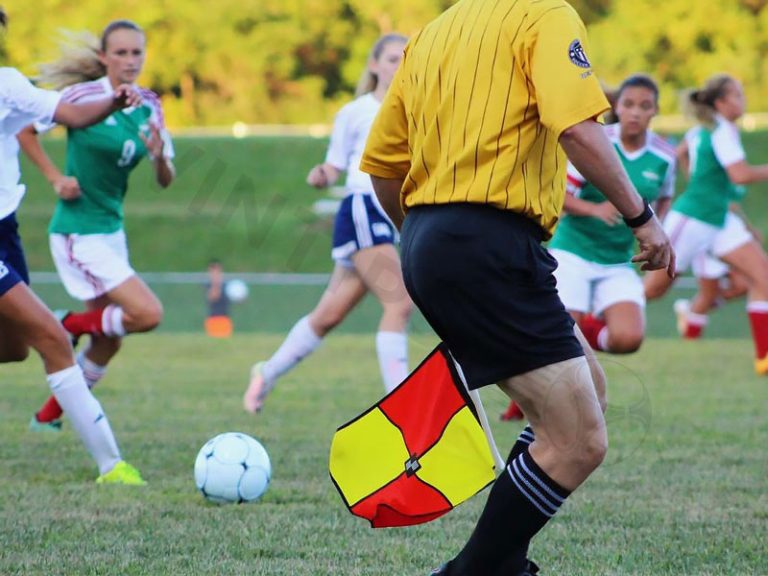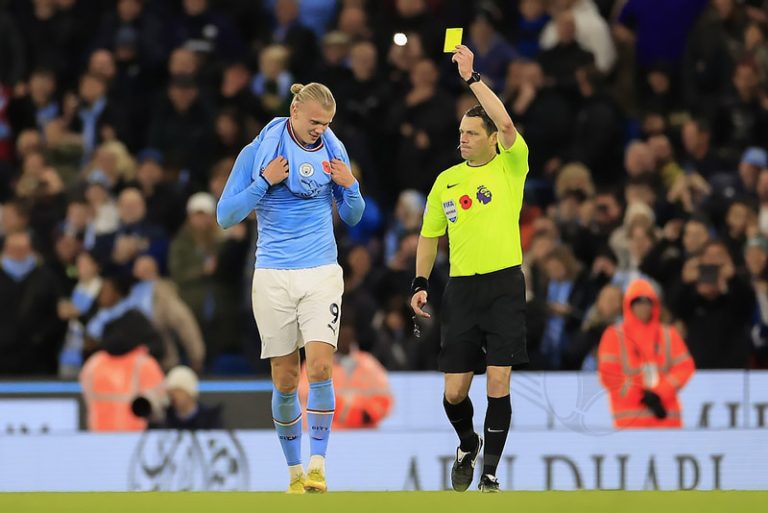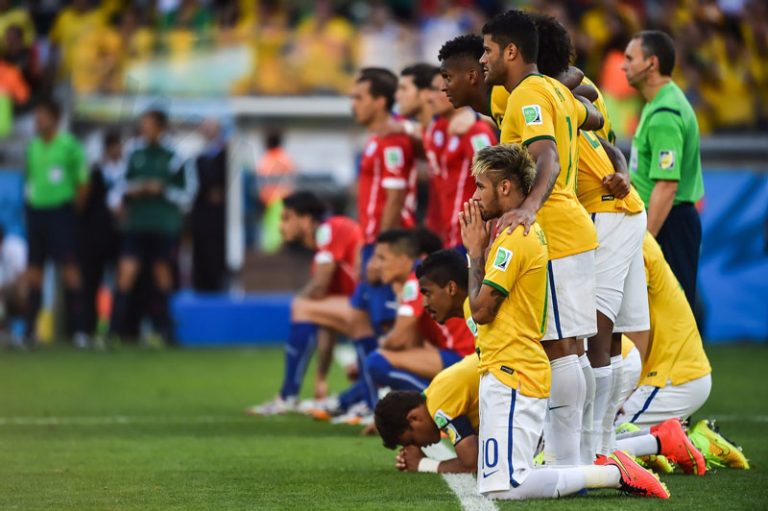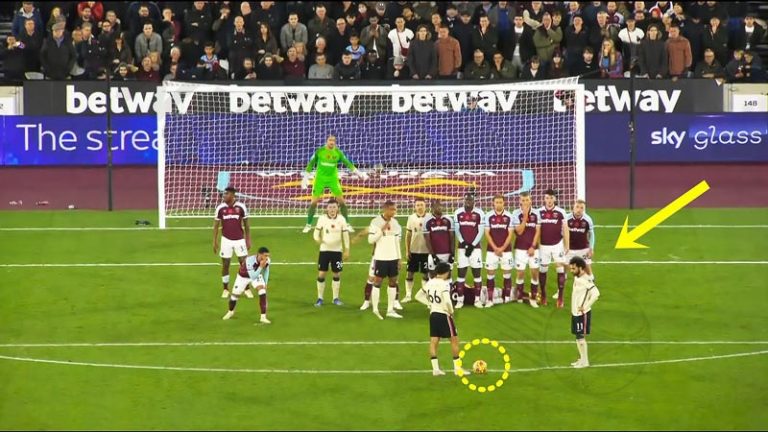The rules of football form a standardized system of regulations applied in matches. They are set and maintained by The International Football Association Board (IFAB). This set of rules is applied worldwide. Every player, coach, referee, and fan should be familiar with these regulations. In reality, there are some rules that football fans often overlook while watching matches. There might be some rules you're not aware of, and in this article, Wintips admin will reveal some exciting 10 unknown rules in football.

The most 10 unknown rules in football
1. If the ball bursts on its way into the goal, the goal will not be counted
Football's governing bodies believed that the ball should always be intact, thus this rule was introduced. If the ball is not intact, the match must be paused to replace it. In the Champions League, there was an incident in which the ball burst, but the goal was still awarded. Perhaps in that situation, it was too difficult for the referee to notice that the ball had burst, and even the players were unaware of this rule.
2. A yellow card for excessive celebration by a player will be retained, even if the goal is not awarded
According to the rule makers: Even though the goal is disallowed, the impact of the celebration on the audience remains the same as if the goal had been awarded. Therefore, don't be surprised if you receive a yellow card even though the goal is disallowed.

For instance, if you score a goal and remove your shirt to celebrate, but VAR disallows the goal, you will still receive a yellow card for improper celebration.
3. Players can receive a red card even before the match begins - 10 unknown rules in football
A player can be shown a red card before the match even begins. If a player commits an unsportsmanlike act before the game starts, the referee has the authority to issue a red card and disqualify them from the match.
Examples of misconduct include cursing at the referee, insulting opponents or teammates, or attacking fans. In November 2017, Patrice Evra, while playing for Marseille (France), performed a kung-fu kick on a fan during a pre-match warm-up. The referee immediately showed a red card, and Evra was unable to play that match.
Check out our soccer prediction mathematical model to improve your betting strategy!
4. In penalty shootouts from 11 meters, there must be an equal number of players from both teams allowed to take penalties
During a penalty shootout, both teams must have the same number of players eligible to take penalties. Simply put, during the regular 120 minutes, if Team A has a player sent off with a red card, the team will only have 10 players for the penalty shootout. Team B, even if none of its players receives a red card, will also only be allowed to have 10 players for the shootout. This means one player from Team B is automatically unable to participate in the penalty shootout.

For example, in the 2006 World Cup final between France and Italy, the legendary Zidane (France) was sent off during extra time, and one Italian player was "excluded" from the shootout. Can you guess which Italian player was removed from the list of penalty-takers? The answer is midfielder Gennaro Gattuso. He played 420 minutes throughout the tournament but was unable to stand with his teammates at the center circle during the shootout.
5. A match can start with only 7 players from each team - 10 unknown rules in football
We all know that football matches consist of two teams, each consisting of 11 players. However, if your team encounters technical issues before the game, you can still start the match with only seven players. Seven players are the minimum required to start the match.
This rule also means that a team can be shown a maximum of four red cards in a match. When the fifth player is sent off, the match is automatically abandoned. Note that this rule does not apply to reserve players. They can receive red cards without affecting this rule, as long as there are still seven players on the field.
6. Players cannot score an own goal directly from a corner kick or a throw-in
Indeed, if a player directly kicks or throws the ball into their own goal without it touching anyone, it will not stand as their own goal. In such cases, the opposing team will be awarded a corner kick. However, it's very rare for spectators to witness this rule being enforced.
Curious about who is the most accurate football prediction? We've tested multiple models and here’s what we found.
7. No player from the defending team in a free-kick situation is allowed to stand closer than 1 meter to the defensive wall
This law was officially put into effect on June 1, 2019. When the defensive wall consists of three or more players from Team A (the free-kick takers), players from Team B are not allowed to stand within one meter of the wall. According to football's governing bodies, players from Team B standing in Team A’s wall often create difficulties for referees in maintaining order, leading to unnecessary delays.

"There is no concrete evidence that Team B players gain an advantage when standing inside Team A’s fence. Moreover, their presence contradicts FIFA’s 'Spirit of the Match' slogan, potentially harming the integrity of the game". If an A-team player spots a Team B player sneaking into the fence, he can report it to the referee for disciplinary action.
8. The team that wins the coin toss can now choose to either kick off or select their preferred end of the field
Previously, the team winning the coin toss could only choose their end of the field. However, nowadays, they have the option to choose the kick-off or their preferred end.
9. During penalty shootouts, goalkeepers are prohibited from touching the net, goalposts, or crossbar.
Referees may disallow a penalty kick if they notice a goalkeeper touching the goalposts or crossbar in an attempt to distract the opponent. Although this rule exists, it is rare for referees to delay a penalty kick due to a goalkeeper touching the goal frame.
10. The maximum holding time for goalkeepers is 6 seconds - 10 unknown rules in football
After catching the ball, goalkeepers must release it into play within six seconds. However, this rule is not always strictly enforced. If caught, the goalkeeper may receive a yellow card, and the opposing team will be awarded an indirect free kick.
Conclusion
Above are 10 unknown rules in football that you may have never noticed or heard of before. They will help ensure fair and transparent encounters and limit instances of foul play and cheating by all parties involved. Of course, knowing these rules will also help you position yourself properly while playing football to avoid committing unnecessary fouls. Keep following the bookmaker com reviews website every day to stay updated with more interesting sports news.
See also: The greatest comeback in football history all of time







